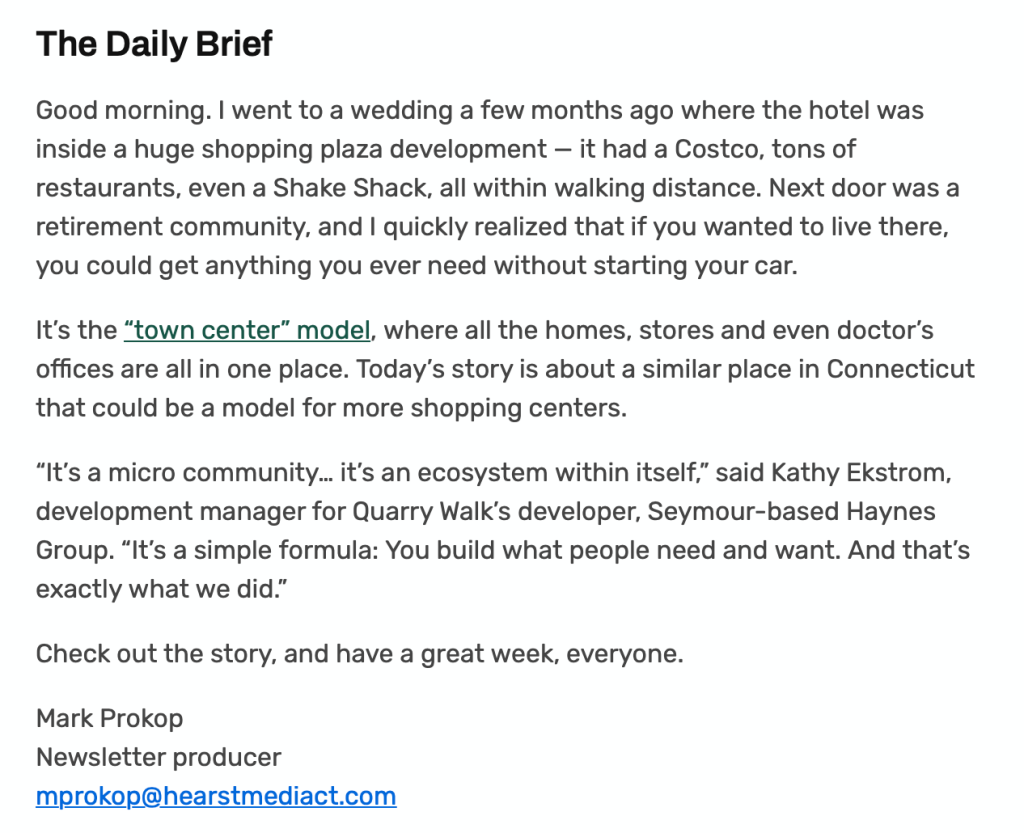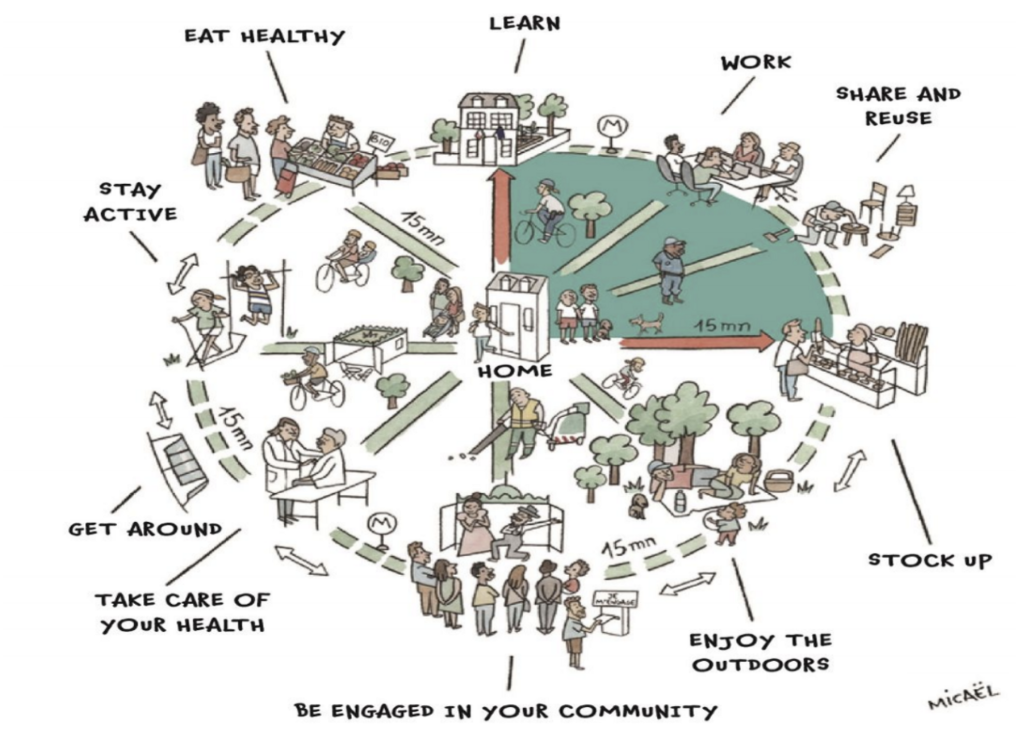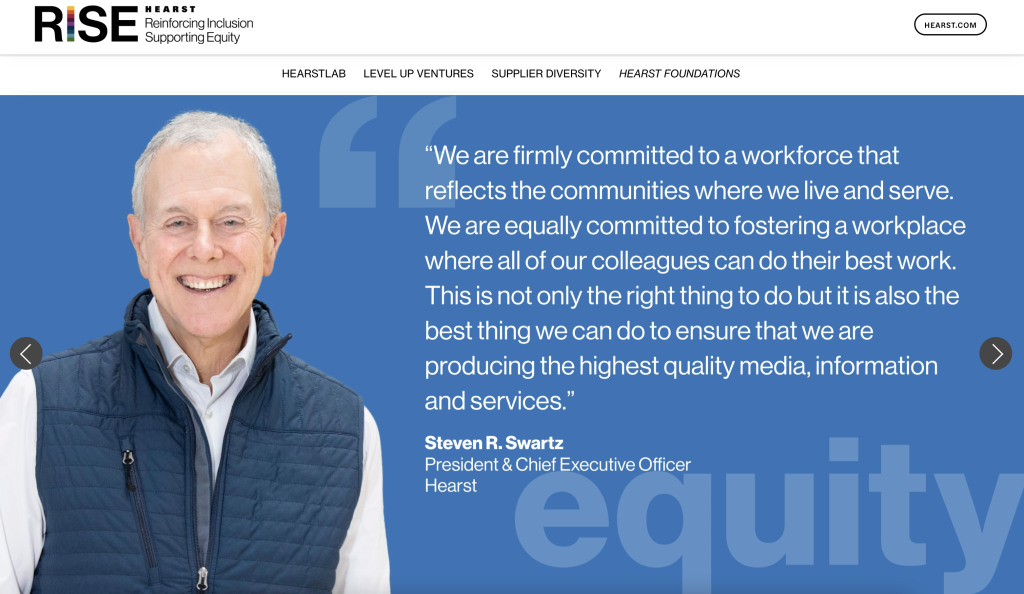
Please Follow us on Gab, Minds, Telegram, Rumble, Gettr, Truth Social, Twitter
This morning's daily newsletter from Hearst Communications Producer Mark Prokop featured a special highlight on the "town center" model where homes, stores, and even doctor's offices are "located in one place"—a model which sounds suspiciously similar to the "15-minute city" model favored by the World Economic Forum.

The article Prokop references, This CT plaza could become a future model for shopping centers, starts off by having you imagine driving past "American and Pride flags, and a yard sign in support of Ukraine" before turning down a "partly-cobblestoned road" to get to the downtown of the future, and the potential future of retail in Connecticut.
The Quarry Walk development "micro community" includes an urgent care center, restaurants, boutiques, health care, living facilities and parking, along with green space nicely adorned with Adirondack chairs for community engagement.
New versions of the Quarry Walk model are planned for Naugatuck and Beacon Falls/Seymour.
“My advice for a town is get with the new program, or you’re going to be out,” said Jeffrey Luff, who was on the town's planning commission at the time Quarry Walk was approved. “This is the wave of the future. I think this is definitely the future, because you can literally hop on your bike and get anywhere.”
Now let's compare the Quarry Walk model with the 15-minute city model heavily favored by the World Economic Forum (WEF).
The WEF described the “15-minute city” concept as "having all necessary amenities within a short walk, bike ride, or public transit trip from one’s home". Sound familiar?

The WEF wrote about the "creative destruction" of cities in the wake of COVID-19 on March 15, 2022, suggesting the 15-minute city concept in its place—a concept which took hold "in a way that it would not have before the pandemic". Gee, how many issues can be fit into the covid pandemic narrative?
"With COVID-19 and its variants keeping everyone home (or closer to home than usual), the 15-minute city went from a “nice-to-have” to a rallying cry. Meeting all of one’s needs within a walking, biking or transit distance was suddenly a matter of life and death. The pandemic created an urgency around equitable urbanism that sidelined arguments about bike lanes and other “amenities” that have roiled communities for years."
World Economic Forum
So the 15-minute city is about "equitable" urbanism without cars? And "ease" in case of a future pandemic? Or should we say a future lockdown?
Apparently 15-minute cities will also be more resilient to climate change, as well as shocks and stresses caused by global conflict, though no evidence is provided for how this could be true in the WEF article.
Sounds like 15-minute cities check off a lot of boxes on the progressive, globalist agenda, don't they?
Of course, it's not terribly surprising to see a mainstream media outlet push a progressive agenda item like Hearst Communications did in today's newsletter.
Hearst owns the Connecticut Post, the Greenwich Time, the Middletown Press, the New Haven Register, the News-Times (Greater Danbury), the Norwalk Hour, the Register Citizen (Torrington/Northwest Corner and Litchfield County), and the Stamford Advocate.
And, yes, Hearst pushes its own DEI agenda called "reinforcing inclusion supporting equity".


Oh no ! I have to walk ? You mean, I cannot drive my useless truck (while I complain about the gas price) to Walmart and back again ? This is literally Communism !
you will comply sheeple put yo masks on and surrender all of you property and rights in the name of diversity and climate change, any resistors will be promptly executed and and their remains ground into feed for the remaining sheeps in the name of sustainibility, Stamford plan for the new generation